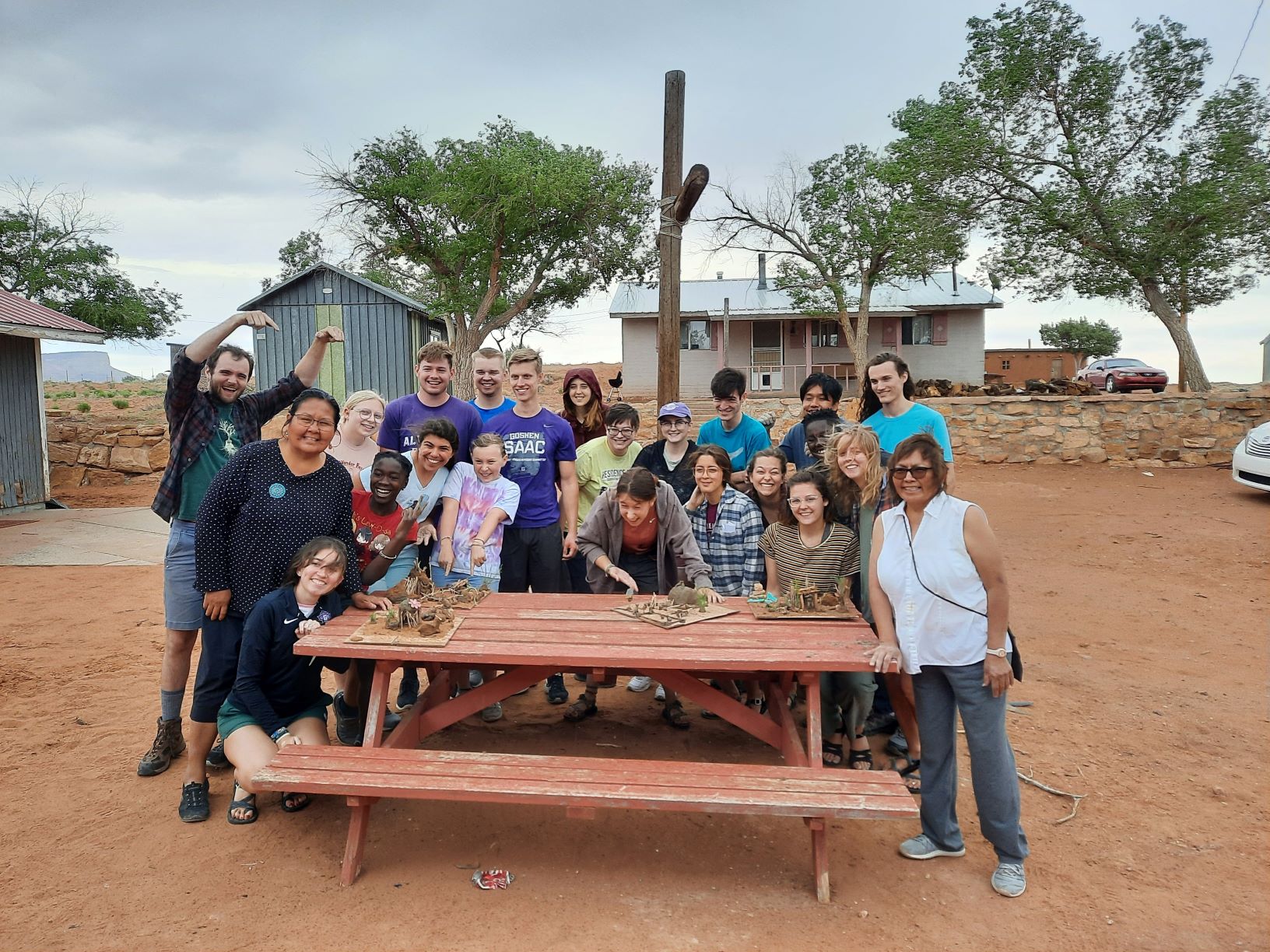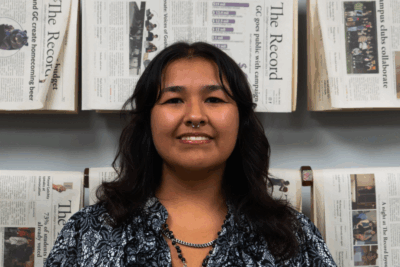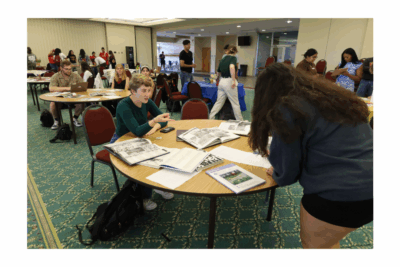Goshen College is known for its immersive, cross-cultural Study-Service Term (SST) experience. Traditionally, that experience has involved a semester abroad; however, the college is beginning to explore new programs within the United States, including a six-week SST on the Navajo and Hopi reservations in the American Southwest this summer.
Consisting of 18 students and led by sociology professors Kendra Yoder and David Lind, the first Southwest Indigenous Perspectives SST unit departed for the Navajo Nation on June 15 and returned to Goshen on July 26.Students signed on for this SST option for several reasons. Some did not feel comfortable leaving the United States, while others needed academic credit after their international SST units were canceled due to COVID-19.
Eli Reimer, a senior peace, justice and conflict studies and Bible and religion double major, was excited for the opportunity to have an SST experience in the United States.
“I’ve always wanted there to be domestic SST units, so I jumped at the chance to be a part of Goshen’s first one,” they said. “While Goshen is very intentional about how they run international SSTs, I’ve always felt that this focus on other countries creates a mindset where all the problems are ‘out there.’ We have plenty of problems here in the U.S. We don’t need to travel overseas and speak a foreign language to find different cultures and people who are struggling.”
Before their departure, the 18 students took two courses on Native American cultures and on the global context of Indigenous rights issues.
Reimer appreciated the classes, noting that they provided “a framework that we could use to make sense of our experiences.”
Throughout their six-week experience on the Navajo and Hopi reservations, students learned about the Navajo language and traditional pottery techniques, spent three days with Navajo host families, explored several national parks and volunteered at a summer children’s camp on the Hopi Reservation.
As an SST leader, Yoder found herself learning alongside the students.
“I think we definitely learned how COVID-19 has differentially impacted Indigenous peoples of the Southwest,” Yoder said.
Savannah Roth Walter, a senior sociology major, had many impactful experiences throughout SST, but particularly values the time she spent with her host family.
“I stayed in a tiny house with my host mom, Sami, and Grandma Leta,” she said. “We talked and talked and talked. I heard all about their family, their religion and Sami’s funny stories of her nephews.”
Reimer had similarly memorable experiences, but their favorite involves a little more blood and gore than Walter’s.
“One Saturday, a group of women from the church we were staying at showed us how to butcher a sheep!” Reimer said. “It was an incredible experience, and one I recommend for anyone concerned about what it means to eat meat ethically. That being said, I smelled like dead sheep for a while after that.”
Student feedback for the Southwest Indigenous Perspectives SST has been largely positive, with several students voicing their support for making the program a permanent unit.
“It gave me an enriching, new, and important cross-cultural connection that was right here in the United States,” Walter said.
The success of the unit has advanced Goshen College’s plan to “make SST more accessible and more possible for all students to participate,” according to Yoder.
Jerrell Richer, professor of economics, hopes to lead a future unit of the Southwest Indigenous Perspectives SST. He will also be leading another domestic Arizona program in the summer of 2022, targeting year-round athletes who might not have the opportunity to go on a full-semester SST but who still want an SST cross-cultural experience.
“There is a lot of cross-cultural possibility in the United States,” Richer said. “It is such a diverse country.”
Jan Bender Shetler, director of international education, wants students to know that “getting a global education does not mean you need to leave the borders of the United States.”
“Yes, we like to do things abroad,” she said, “but we can have the same student learning outcomes … in the U.S., even locally. And we can do it in different ways, different formats and different lengths of time.”




